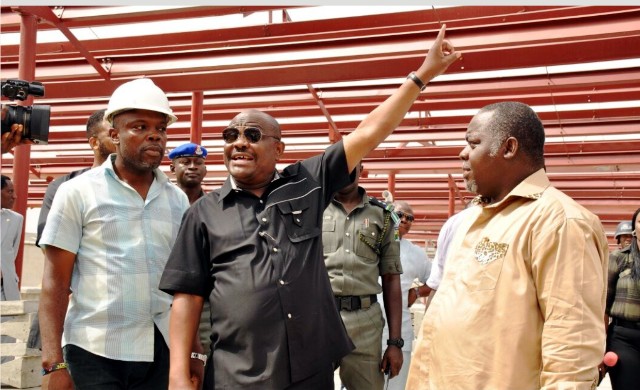Business
Political Risk Threatens FG’s ERGP -Expert

An economist, Prof. Uche Uwaleke, yesterday identified political risk as a major threat to the successful implementation of government Economic Recovery and Growth Plan (ERGP).
Uwaleke, the Head of Banking and Finance, Nasarawa State University, made this known in an interview with newsmen in Abuja.
“Indeed, numerous other vulnerabilities remain but the biggest threat to the ERGP, in my view, is the political risk that received no mention under the section.
“Nigeria’s experience over the years has shown that implementation of development plans suffer neglect whenever there is a change in government.
“The political will argument holds water only in the context of stability in government when the conceiver (the President) is in office throughout the Plan period.
“This condition is necessary for the success of the National plan,’’ he said.
According to Uwaleke, a review of key economic variables over the years indicated that the penultimate and ultimate election years affect economic performance.
The economist said that government spending usually increased in an election year, adding that this usually fuels inflation rather than encourages growth.
He said that in 2011 and 2015, Nigeria’s inflation rate increased due to high expenditure associated with the elections.
The economist said that the forthcoming 2019 election posed a threat to the ERGP’s goal of subduing inflation to single digit level by 2020.
He said that the success of the ERGP would depend not only on its implementation but also on the commitment of the succeeding administration to see it through to the terminal year.
Uwaleke, however, suggested that the country needed an enabling law to back up the ERGP.
He said, “The idea of setting up a Delivery Unit in the Presidency to assist the Ministry of Budget and National Planning in overseeing the ERGP implementation is good but not sufficient.
“If the Delivery Unit is not a creation of the Law, it lacks the capacity to discharge its duties.
“To this end, the Federal Government as a matter of urgency, should forward a Bill to be known as the ‘’Economic Recovery and Growth Bill’’ to the National Assembly.
“The Bill should take care of all issues specific to the ERGP distinct from the current Fiscal Responsibility Act of 2007 which focuses on annual budgets and the three year Medium Term Expenditure Framework.
“ The government has barely one more year to prove that the ERGP will not go the way of its forebears.
“ One of the key deliverables of the Plan is to reduce petroleum product imports by 60 per cent in 2018.
“Therefore, putting in place an enabling law and passing the Petroleum Industry Bill will safeguard the country against the major threat to the ERGP.
The Tide gathered that the Federal Government recently unveiled the ERGP, which contained the road map for Nigeria’s economic development.
The four-year plan (2017-2020) envisages that by 2020, ‘’Nigeria would have made significant progress towards achieving structural economic change with a more diversified and inclusive economy’’.
According to the plan, real GDP would grow by 4.6 per cent on average over the plan period while inflation rate would move to single digit by 2020.
The plan outlines initiatives such as boosting oil production to 2.5 million barrels per day by 2020, privatizing select public enterprises/assets and revamping local refineries to reduce petroleum product imports by 60 per cent by 2018.
Following the implementation of the plan, unemployment would reduce from 13.9 per cent as of Q3 2016 to 11.23 per cent by 2020.
Business
Fidelity Bank To Empower Women With Sustainable Entrepreneurship Skills, HAP2.0
Business
President Tinubu Approves Extension Ban On Raw Shea Nut Export
Business
Crisis Response: EU-project Delivers New Vet. Clinic To Katsina Govt.
-

 News2 days ago
News2 days agoAmend Constitution To Accommodate State Police, Tinubu Tells Senators
-

 Politics2 days ago
Politics2 days agoSenate Urges Tinubu To Sack CAC Boss
-

 News2 days ago
News2 days agoDisu Takes Over As New IGP …Declares Total War On Corruption, Impunity
-
Business3 days ago
President Tinubu Extends Raw Shea Nuts Export Ban To 2027
-
Business3 days ago
Crisis Response: EU-project Delivers New Vet. Clinic To Katsina Govt.
-
Business2 days ago
President Tinubu Approves Extension Ban On Raw Shea Nut Export
-
Sports2 days ago
NDG: Rivers Coach Appeal To NDDC In Talent Discovery
-
Rivers2 days ago
Etche Clan Urges Govt On Chieftaincy Recognition

